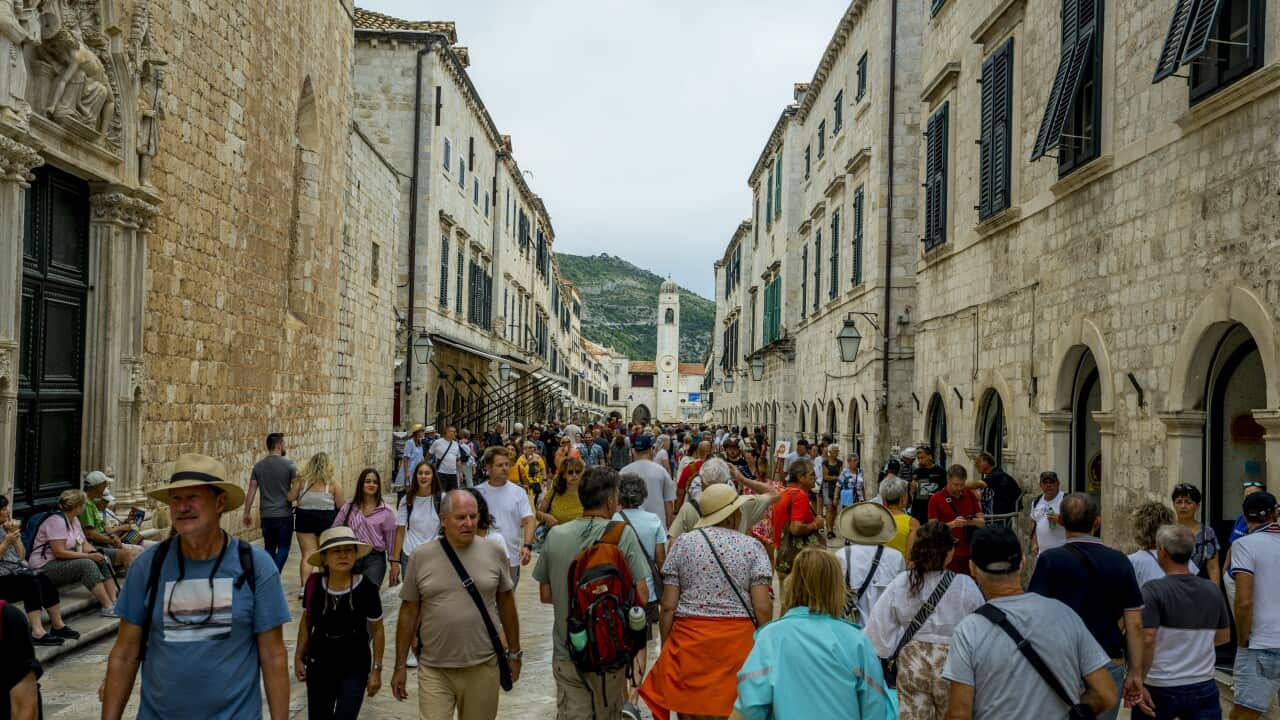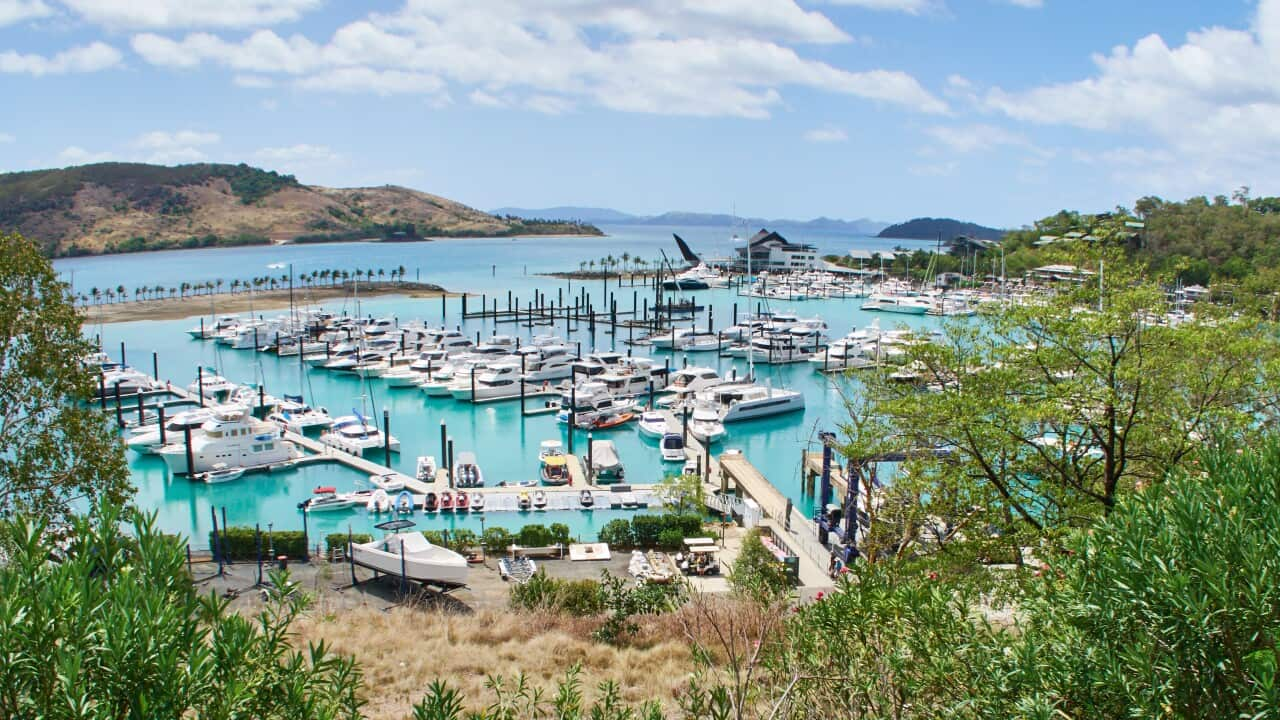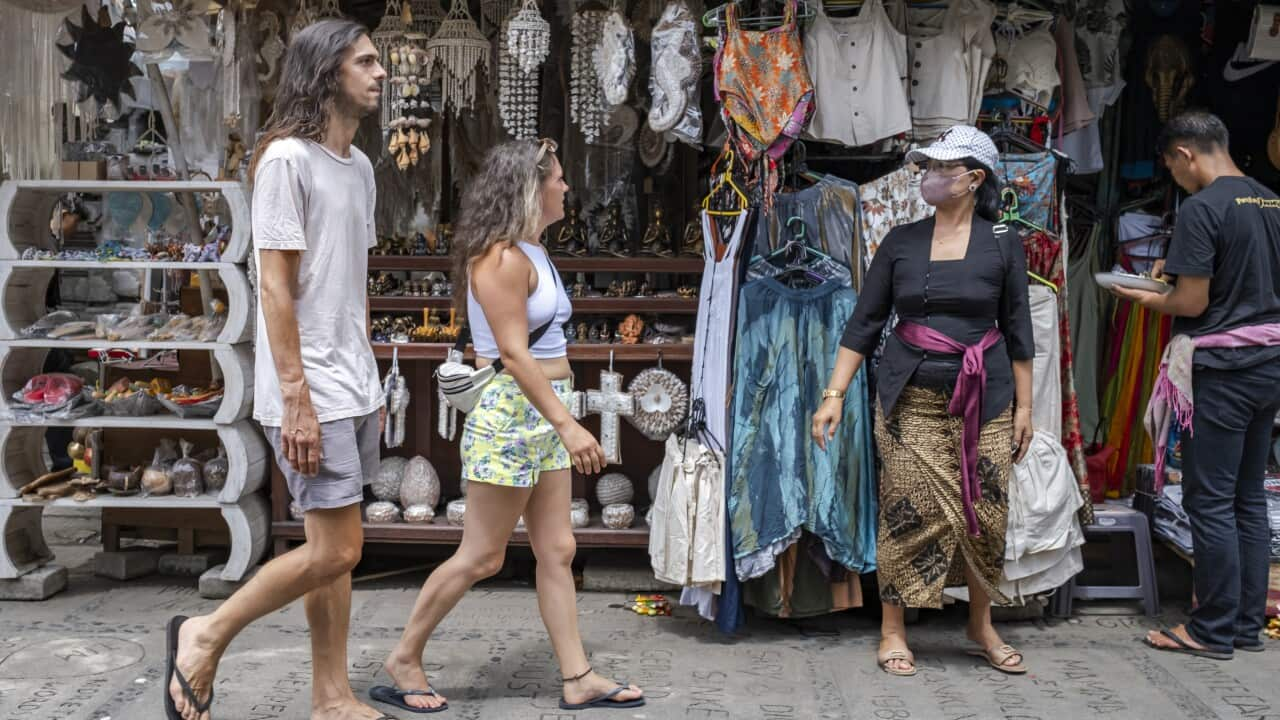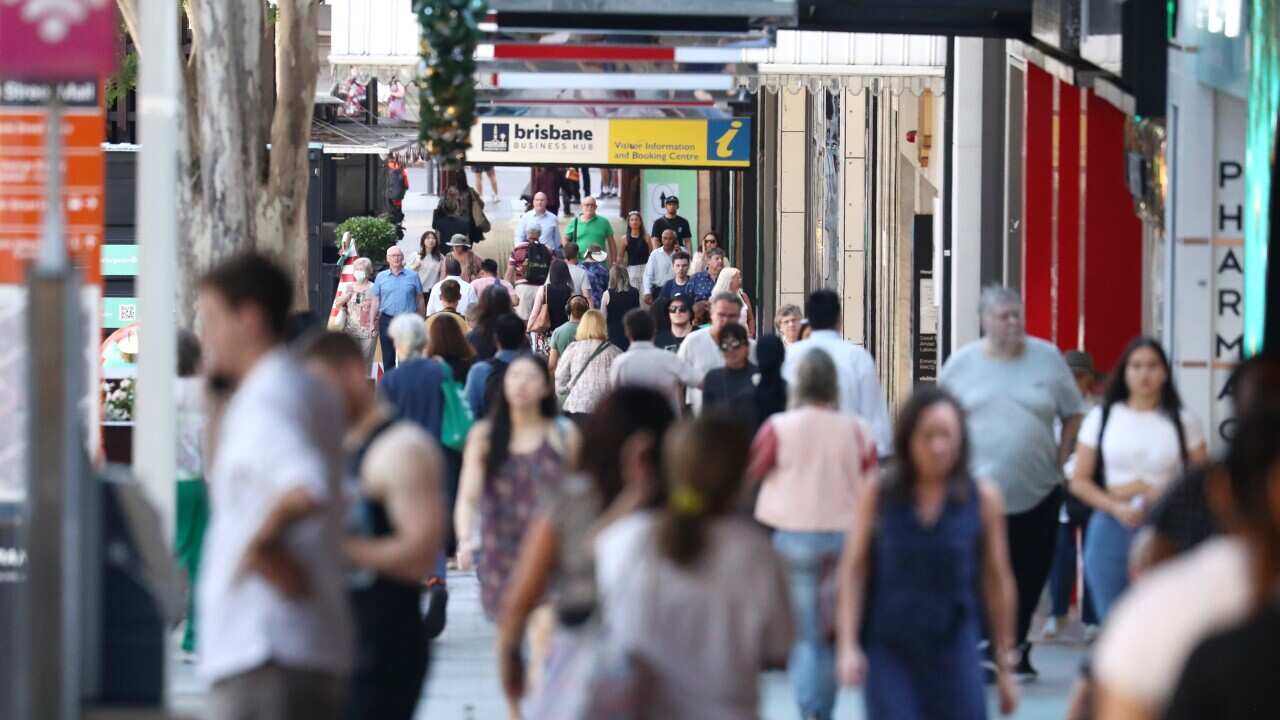European tourist hotspots like Amsterdam and Venice are on a crusade to deal with surging visitor numbers.
Milan is considering a ban on pizza and gelato sales after midnight, as well as enforcing closing times for outdoor areas of restaurants and bars.
The summer of 2023 set a record for Greek tourism, according to The Economist, with 16.9 million visitors during the peak season, even while parts of the country were decimated by wildfires.
Whether it's setting up new protective legislation, levying taxes or closing off access completely, here's how some tourism hotspots are cracking down on the crowds.
Venice

Citizens and activists confront police during a demonstration on Thursday against a newly implemented 5 euro entry fee for Venetian daytrippers. Source: AAP / Luca Bruno
On Thursday, it started charging daytrippers for entry.
Day visitors will have to buy an $8 ticket, monitored by inspectors carrying out spot checks at key points across the UNESCO World Heritage Site.
In 2021, the city banned huge cruise ships from entering its lagoon over concerns about the environmental impact of the huge liners on the city.
Venice has also introduced a tax for overnight visitors.
Amsterdam

Tourists in the city centre of Amsterdam on Easter Sunday, 2024. Source: AAP / Sipa USA
In 2023, it launched an online campaign aimed at discouraging young British men from travelling to Amsterdam to get high or drunk.
The Dutch government told them in typically blunt Dutch fashion to "stay away" or risk arrest.
Amsterdam also announced last week a ban on new hotels and a halving of the number of river cruise ships in the city within five years.
It also decided last year to ban smoking cannabis on the streets of the red-light district.
Dubrovnik

Tourists in Dubrovnik, Croatia, on 30 March 2024. Source: AAP / Grgo Jelavic/PIXSELL
The jewel of the Adriatic has seen a huge surge in visitor numbers since scenes from the series Game of Thrones were filmed on its ramparts in 2011.
In 2023, the town of 41,000 people received 1.2 million tourists, below 2019's record of 1.4 million.
In 2019, local authorities limited the number of cruise ship arrivals to two per day, with no more than 4,000 passengers each at a time.
They also launched an app that uses machine learning and weather forecasts to predict when the Old Town, a UNESCO World Heritage Site, will be busiest.
Barcelona

Several groups of national visitors and tourists are seen attending cultural visits in the Plaza de Sant Felip Neri in the heart of Barcelona's Gothic quarter. Source: AAP / Sipa USA
Ada Colau, the leftist former housing rights activist who was mayor of the city between 2015 and June 2023, cracked down on illegal Airbnb rentals that were accused of pricing locals out of the property market.
The city also limited the entrance of tour groups in the historic La Boqueria market, especially during peak shopping times.
And throughout the centre, organised groups must be limited to a maximum of 20 people and guides are not allowed to use loudspeakers.
In 2023, tourist numbers registering in hotels, homes and hostels were down 6.9 per cent compared with 2019 figures, according to the city council.












